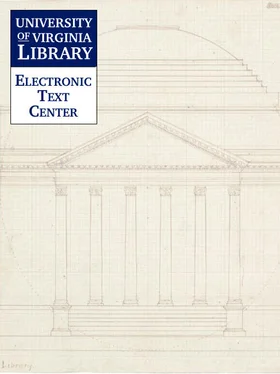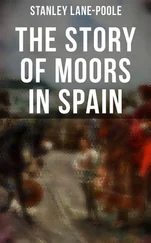Hendrik Loon - The Story of Mankind
Здесь есть возможность читать онлайн «Hendrik Loon - The Story of Mankind» весь текст электронной книги совершенно бесплатно (целиком полную версию без сокращений). В некоторых случаях можно слушать аудио, скачать через торрент в формате fb2 и присутствует краткое содержание. Год выпуска: 2000, Издательство: Electronic Text Center. University of Virginia Library., Жанр: Старинная литература, на английском языке. Описание произведения, (предисловие) а так же отзывы посетителей доступны на портале библиотеки ЛибКат.
- Название:The Story of Mankind
- Автор:
- Издательство:Electronic Text Center. University of Virginia Library.
- Жанр:
- Год:2000
- ISBN:нет данных
- Рейтинг книги:3 / 5. Голосов: 1
-
Избранное:Добавить в избранное
- Отзывы:
-
Ваша оценка:
- 60
- 1
- 2
- 3
- 4
- 5
The Story of Mankind: краткое содержание, описание и аннотация
Предлагаем к чтению аннотацию, описание, краткое содержание или предисловие (зависит от того, что написал сам автор книги «The Story of Mankind»). Если вы не нашли необходимую информацию о книге — напишите в комментариях, мы постараемся отыскать её.
The Story of Mankind — читать онлайн бесплатно полную книгу (весь текст) целиком
Ниже представлен текст книги, разбитый по страницам. Система сохранения места последней прочитанной страницы, позволяет с удобством читать онлайн бесплатно книгу «The Story of Mankind», без необходимости каждый раз заново искать на чём Вы остановились. Поставьте закладку, и сможете в любой момент перейти на страницу, на которой закончили чтение.
Интервал:
Закладка:
Europe stood aghast at the rapidity with which the work of consolidation had been done. England was quite indifferent but France showed signs of disapproval. Napoleon's hold upon the French people was steadily diminishing. The Crimean war had been costly and had accomplished nothing.
A second adventure in the year 1863, when a French army had tried to force an Austrian Grand-Duke by the name of Maximilian upon the Mexican people as their Emperor, had come to a disastrous end as soon as the American Civil War had been won by the North. For the Government at Washington had forced the French to withdraw their troops and this had given the Mexicans a chance to clear their country of the enemy and shoot the unwelcome Emperor.
It was necessary to give the Napoleonic throne a new coat of glory-paint. Within a few years the North German Confederation would be a serious rival of France. Napoleon decided that a war with Germany would be a good thing for his dynasty. He looked for an excuse and Spain, the poor victim of endless revolutions, gave him one.
Just then the Spanish throne happened to be vacant. It had been offered to the Catholic branch of the house of Hohenzollern. The French government had objected and the Hohenzollerns had politely refused to accept the crown. But Napoleon, who was showing signs of illness, was very much under the influence of his beautiful wife, Eugénie de Montijo, the daughter of a Spanish gentleman and the grand-daughter of William Kirkpatrick, an American consul at Malaga, where the grapes come from. Eugénie, although shrewd enough, was as badly educated as most Spanish women of that day. She was at the mercy of her spiritual advisers and these worthy gentlemen felt no love for the Protestant King of Prussia. ``Be bold,'' was the advice of the Empress to her husband, but she omitted to add the second half of that famous Persian proverb which admonishes the hero to ``be bold but not too bold.'' Napoleon, convinced of the strength of his army, addressed himself to the king of Prussia and insisted that the king give him assurances that ``he would never permit another candidature of a Hohenzollern prince to the Spanish crown.'' As the Hohenzollerns had just declined the honour, the demand was superfluous, and Bismarck so informed the French government. But Napoleon was not satisfied.
It was the year 1870 and King William was taking the waters at Ems. There one day he was approached by the French minister who tried to re-open the discussion. The king answered very pleasantly that it was a fine day and that the Spanish question was now closed and that nothing more remained to be said upon the subject. As a matter of routine, a report of this interview was telegraphed to Bismarck, who handled all foreign affairs. Bismarck edited the dispatch for the benefit of the Prussian and French press. Many people have called him names for doing this. Bismarck however could plead the excuse that the doctoring of official news, since time immemorial, had been one of the privileges of all civilised governments. When the ``edited'' telegram was printed, the good people in Berlin felt that their old and venerable king with his nice white whiskers had been insulted by an arrogant little Frenchman and the equally good people of Paris flew into a rage because their perfectly courteous minister had been shown the door by a Royal Prussian flunkey.
And so they both went to war and in less than two months, Napoleon and the greater part of his army were prisoners of the Germans. The Second Empire had come to an end and the Third Republic was making ready to defend Paris against the German invaders. Paris held out for five long months. Ten days before the surrender of the city, in the nearby palace of Versailles, built by that same King Louis XIV who had been such a dangerous enemy to the Germans, the King of Prussia was publicly proclaimed German Emperor and a loud booming of guns told the hungry Parisians that a new German Empire had taken the place of the old harmless Confederation of Teutonic states and stateless.
In this rough way, the German question was finally settled. By the end of the year 1871, fifty-six years after the memorable gathering at Vienna, the work of the Congress had been entirely undone. Metternich and Alexander and Talleyrand had tried to give the people of Europe a lasting peace. The methods they had employed had caused endless wars and revolutions and the feeling of a common brotherhood of the eighteenth century was followed by an era of exaggerated nationalism which has not yet come to an end.
THE AGE OF THE ENGINE
BUT WHILE THE PEOPLE OF EUROPE WERE FIGHTING FOR THEIR NATIONAL INDEPENDENCE, THE WORLD IN WHICH THEY LIVED HAD BEEN ENTIRELY CHANGED BY A SERIES OF INVENTIONS, WHICH HAD MADE THE CLUMSY OLD STEAM ENGINE OF THE 18TH CENTURY THE MOST FAITHFUL AND EFFICIENT SLAVE OF MAN
THE greatest benefactor of the human race died more than half a million years ago. He was a hairy creature with a low brow and sunken eyes, a heavy jaw and strong tiger-like teeth. He would not have looked well in a gathering of modern scientists, but they would have honoured him as their master. For he had used a stone to break a nut and a stick to lift up a heavy boulder. He was the inventor of the hammer and the lever, our first tools, and he did more than any human being who came after him to give man his enormous advantage over the other animals with whom he shares this planet.
Ever since, man has tried to make his life easier by the use of a greater number of tools. The first wheel (a round disc made out of an old tree) created as much stir in the communities of 100,000 B.C. as the flying machine did only a few years ago.
In Washington, the story is told of a director of the Patent Office who in the early thirties of the last century suggested that the Patent Office be abolished, because ``everything that possibly could be invented had been invented.'' A similar feeling must have spread through the prehistoric world when the first sail was hoisted on a raft and the people were able to move from place to place without rowing or punting or pulling from the shore.
Indeed one of the most interesting chapters of history is the effort of man to let some one else or something else do his work for him, while he enjoyed his leisure, sitting in the sun or painting pictures on rocks, or training young wolves and little tigers to behave like peaceful domestic animals.
Of course in the very olden days; it was always possible to enslave a weaker neighbour and force him to do the unpleasant tasks of life. One of the reasons why the Greeks and Romans, who were quite as intelligent as we are, failed to devise more interesting machinery, was to be found in the wide-spread existence of slavery. Why should a great mathematician waste his time upon wires and pulleys and cogs and fill the air with noise and smoke when he could go to the marketplace and buy all the slaves he needed at a very small expense?
And during the middle-ages, although slavery had been abolished and only a mild form of serfdom survived, the guilds discouraged the idea of using machinery because they thought this would throw a large number of their brethren out of work. Besides, the Middle-Ages were not at all interested in producing large quantities of goods. Their tailors and butchers and carpenters worked for the immediate needs of the small community in which they lived and had no desire to compete with their neighbours, or to produce more than was strictly necessary.
During the Renaissance, when the prejudices of the Church against scientific investigations could no longer be enforced as rigidly as before, a large number of men began to devote their lives to mathematics and astronomy and physics and chemistry. Two years before the beginning of the Thirty Years War, John Napier, a Scotchman, had published his little book which described the new invention of logarithms. During the war itself, Gottfried Leibnitz of Leipzig had perfected the system of infinitesimal calculus. Eight years before the peace of Westphalia, Newton, the great English natural philosopher, was born, and in that same year Galileo, the Italian astronomer, died. Meanwhile the Thirty Years War had destroyed the prosperity of central Europe and there was a sudden but very general interest in ``alchemy,'' the strange pseudo-science of the middle-ages by which people hoped to turn base metals into gold. This proved to be impossible but the alchemists in their laboratories stumbled upon many new ideas and greatly helped the work of the chemists who were their successors.
Читать дальшеИнтервал:
Закладка:
Похожие книги на «The Story of Mankind»
Представляем Вашему вниманию похожие книги на «The Story of Mankind» списком для выбора. Мы отобрали схожую по названию и смыслу литературу в надежде предоставить читателям больше вариантов отыскать новые, интересные, ещё непрочитанные произведения.
Обсуждение, отзывы о книге «The Story of Mankind» и просто собственные мнения читателей. Оставьте ваши комментарии, напишите, что Вы думаете о произведении, его смысле или главных героях. Укажите что конкретно понравилось, а что нет, и почему Вы так считаете.












